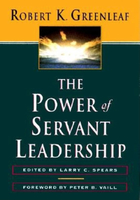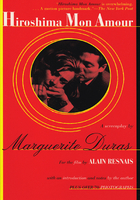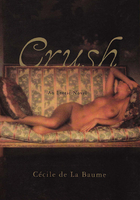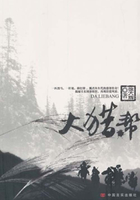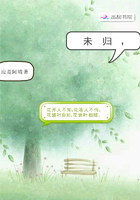Because this was Venice, the police came by boat, blue light flashing on the forward cabin. They pulled up at the side of the small canal behind the theatre, and four men got out, three in blue uniform and one in civilian clothes. Quickly they walked up the calle, or narrow street, alongside the theatre and continued through the stage entrance, where the portiere, who had been warned of their arrival, pushed the button that released the turnstile and allowed them to walk freely into the backstage area. He pointed silently to a staircase.
At the top of the first flight of steps, they were met by the still-stunned director. He started to extend his hand to the civilian, who seemed to be in charge, but forgot about the gesture and wheeled around, saying over his shoulder, 'This way.' Advancing down a short corridor, he stopped at the door to the conductor's dressing room. There he stopped and, reduced to gestures, pointed inside.
Guido Brunetti, a commissario of police for the city, was the first through the door. When he saw the body in the chair, he held up his hand and signalled the uniformed officers not to come any farther into the room. The man was clearly dead, body twisted backwards, face horribly distorted, so there was no need to search for a sign of life; there would be none.
The dead man was as familiar to Brunetti as he was to most people in the Western world, if not because they had actually seen him on the podium, then because they had, for more than four decades, seen his face, with its chiselled Germanic jaw, its too-long hair that had remained raven black well into his sixties, on the covers of magazines and the front pages of newspapers. Brunetti had seen him conduct twice, years before, and he had, during the performance, found himself watching the conductor, not the orchestra. As if in the grip of a demon, or a deity, Wellauer's body had swept back and forth above the podium, left hand clutched half open, as if he wanted to rip the sound from the violins. In his right hand, the baton was a weapon, flashing now here, now there, a thunderbolt that summoned up waves of sound. But now, in death, all sign of the deity had fled, and there remained only the leering demon's mask.
Brunetti turned his eyes away and glanced around the room. He saw the cup lying on the floor, the saucer not far from it. That explained the dark stains on the shirt and, Brunetti was sure, the horribly twisted features.
Still only a short distance into the room, Brunetti remained still and let his eyes roam, taking note of what he saw, uncertain about what any of it might come to mean, curious. He was a surprisingly neat man: tie carefully knotted, hair shorter than was the fashion; even his ears lay close to his head, as if reluctant to call attention to themselves. His clothing marked him as Italian. The cadence of his speech announced that he was Venetian. His eyes were all policeman.
He reached forward and touched the back of the dead man's wrist, but the body was cold, the skin dry to the touch. He took one last look around and turned to one of the men who stood behind him. He told him to call the medical examiner and the photographer. He told the second officer to go downstairs and speak to the portiere. Who was backstage that night? Have the portiere make a list. To the third, he said he wanted the names of anyone who had spoken to the Maestro that evening, either before the performance or during the intermissions.
He stepped to the left and opened the door to a small bathroom. The single window was closed, as the one in the dressing room had been. In the closet hung a dark overcoat and three starched white shirts.
He went back into the dressing room and across to the body. With the back of his fingers, he pushed aside the lapels of the dead man's jacket and pulled open the inner pocket. He found a handkerchief, and holding it by a corner, he pulled it out slowly. There was nothing else in the pocket. He repeated the same process with the side pockets, finding the usual things: a few thousand lire in small bills; a key with a plastic tag attached to it, probably the key to this room; a comb; another handkerchief. He didn't want to disturb the body until it had been photographed, so he left the pockets of the trousers until later.
The three policemen, satisfied that there was a certifiable victim, had gone off to follow Brunetti's orders. The director of the theatre had disappeared. Brunetti stepped out into the corridor, hoping to find him and get some idea of how long ago the body had been discovered. Instead he found a small, dark woman, leaning against the wall, smoking. From behind them came deep waves of music.
'What's that?' Brunetti asked.
'La Traviata,' the woman replied simply.
'I know,' he said. 'Does that mean they went on with the performance?'
'Even if the whole world falls,' she said, giving it that heavy weight and emphasis usually reserved for quotations.
'Is that something from Traviata?' he asked.
'No; Turandot,' she responded, voice calm.
'Yes, but still,' he protested. 'Out of respect for the man.'
She shrugged, tossed her cigarette to the cement floor, ground it out with her foot.
'And you are?' he finally asked.
'Barbara Zorzi,' she answered, then amended it, though he hadn't asked. 'Dr Barbara Zorzi. I was in the audience when they asked for a doctor, so I came back here and found him, at exactly ten thirty-five. His body was still warm, so I'd estimate he had been dead for less than half an hour. The coffee cup on the floor was cold.'
'You touched it?'
'Only with the back of my fingers. I thought it might be important to know if it was still warm. It wasn't.' She took another cigarette from her bag, offered him one, didn't seem surprised when he refused, and lit it for herself.
'Anything else, Doctor?'
'It smells like cyanide,' she answered. 'I've read about it, and we worked with it once, in pharmacology. The professor wouldn't let us smell it; he said even the fumes were dangerous.'
'Is it really that toxic?' he asked.
'Yes. I forget how little is necessary to kill a person; far less than a gram. And it's instantaneous. Everything simply stops–heart, lungs. He would have been dead, or at least unconscious, before the cup hit the floor.'
'Did you know him?' Brunetti asked.
She shook her head. 'No more than anyone who likes opera knew him. Or anyone who reads Gente,' she added, naming a gossip magazine he found it difficult to believe she would read.
She looked up at him and asked, 'Is that all?'
'Yes, Doctor, I think so. Would you leave your name with one of my men so that we can contact you if we have to?'
'Zorzi, Barbara,' she said, not at all impressed by his official voice and manner. 'I'm the only one in the phone book.'
She dropped the cigarette and stepped on it, then extended her hand to him. 'Goodbye, then. I hope this doesn't become too ugly.' He didn't know if she meant for the Maestro, the theatre, the city, or for him, so he merely nodded his thanks and shook her hand. As she left, it struck Brunetti how strangely similar his work was to that of a doctor. They met over the dead, both asking 'Why?' But after they found the answer to that question, their paths parted, the doctor going backward in time to find the physical cause, and he going forward to find the person responsible.
Fifteen minutes later, the medical examiner arrived, bringing with him a photographer and two white-jacketed attendants whose job it would be to take the body to the Civil Hospital. Brunetti greeted Dr Rizzardi warmly and explained as much as he had learned about the probable time of death. Together, they went back to the dressing room. Rizzardi, a fastidiously dressed man, pulled on latex gloves, checked his watch automatically, and knelt beside the body. Brunetti watched him as he examined the victim, oddly touched to see that he treated the corpse with the same respect he would give to a living patient, touching it softly and, when necessary, turning it gently, helping the awkward movement of stiffening flesh with practised hands.
'Could you take the things from his pockets, Doctor?' Brunetti asked, since he didn't have gloves and didn't want to add his prints to anything that might be found. The doctor complied, but all he found was a slim wallet, alligator perhaps, which he pulled out by one corner and placed on the table beside him.
He got to his feet and stripped off his gloves. 'Poison. Obviously. I'd say it was cyanide; in fact, I'm sure it was, though I can't tell you that officially until after the autopsy. But from the way his body's bent backwards, it can't be anything else.' Brunetti noticed that the doctor had closed the dead man's eyes and attempted to ease the corners of his distorted mouth. 'It's Wellauer, isn't it?' the doctor asked, though the question was hardly necessary.
When Brunetti nodded, the doctor exclaimed, 'Maria Vergine, the mayor's not going to like this at all.'
'Then let the mayor find out who did it,' Brunetti shot back.
'Yes, stupid of me. Sorry, Guido. We should be thinking of the family.'
As if on cue, one of the three uniformed policemen came to the door and signalled Brunetti. When he emerged from the room, he saw Fasini standing next to a woman he assumed was the Maestro's daughter. She was tall, taller than the director, taller even than Brunetti, and to that she had added a crown of blonde hair. Like the Maestro, she had a Slavic tilt to her cheekbones and eyes of a blue so clear as to be almost glacial.
When she saw Brunetti emerge from the dressing room, she took two quick steps away from the director. 'What's wrong?' she asked in heavily accented Italian. 'What's happened?'
'I'm sorry, Signorina,' Brunetti began.
Not hearing him, she cut him short and demanded, 'What's happened to my husband?'
Though surprised, Brunetti had the presence of mind to move to his right, effectively blocking her entrance to the room. 'Signora, I'm sorry, but it would be better if you didn't go in there.' Why was it that they always knew what it was you had to tell them? Was it the tone, or did some sort of animal instinct cause us to hear death in the voice that bore the news?
The woman slumped to one side, as though she had been struck. Her hip slammed against the keyboard of the piano, filling the corridor with discordant sound. She braced her body with a stiff out-thrust hand, palm smashing more discord from the keys. She said something in a language Brunetti didn't understand, then put her hand to her mouth in a gesture so melodramatic it had to be natural.
It seemed, in this moment, that he had spent his entire life doing this to people, telling them that someone they loved was dead or, worse, had been killed. His brother, Sergio, was an X-ray technician and had to wear a small metallic card pinned to his lapel that would turn a strange color if it was exposed to dangerous amounts of radiation. Had he worn a similar device, sensitive to grief or pain or death, it would have changed colour permanently long ago.
She opened her eyes and looked at him. 'I want to see him.'
'I think it would be better if you didn't,' he answered, knowing that this was true.
'What happened?' She strove for calm, and she achieved it.
'I think it was poison,' he said, though in fact he knew.
'Someone killed him?' she asked with astonishment that appeared to be real. Or practised.
'I'm sorry, Signora. There are no answers I can give you now. Is there someone here who can take you home?' From behind them, he could hear the sudden crash of applause, then wave upon wave of it. She gave no sign that she had heard it or his question, simply stared at him and moved her mouth silently.
'Is there anyone in the theatre who can take you home, Signora?'
She nodded, at last understanding him. 'Yes, yes,' she said, then added in a softer voice, 'I need to sit.' He was prepared for this, the sudden blow of reality that sets in after the first shock. It was this that knocked people down.
He put his arm under hers and led her out into the backstage area. Though tall, she was so slender that her weight was easy to support. The only space he could see was a small cubicle on the left, crowded with light panels and equipment he didn't recognize. He lowered her into the chair in front of the panel and signalled to one of the uniformed officers, who had appeared from the wing, which swarmed now with people in costume, taking bows and crowding into groups as soon as the curtain was closed.
'Go down to the bar and get a glass of brandy and a glass of water,' he ordered the policeman.
Signora Wellauer sat in the straight-backed wooden chair, hands grasping the seat on either side of her, and stared at the floor. She shook her head from side to side in negation or in response to some inner conversation.
'Signora, Signora, are your friends in the theatre?'
She ignored him and continued with her silent dialogue.
'Signora,' he repeated, this time placing his hand on her shoulder. 'Your friends, are they here?'
'Welti,' she said, not looking up. 'I told them to meet me back here.'
The officer returned, carrying two glasses. Brunetti took the smaller one and handed it to her. 'Drink this, Signora,' he said. She took it and drank it down absently, then did the same with the water when he handed that to her, as though there were no difference between them.
He took the empty glasses and set them aside.
'When did you see him, Signora?'
'What?'
'When did you see him?'
'Helmut?'
'Yes, Signora. When did you see him?'
'We came in together. Tonight. Then I came back after…' Her voice trailed off.
'After what, Signora?' he asked.
She studied his face for a moment before she answered. 'After the second act. But we didn't speak. I was too late. He just said–no, he didn't say anything.' He couldn't tell if her confusion was caused by shock or by difficulty with the language, but he was certain she was past the point where she could be asked questions.
Behind them, another wave of applause crashed out at them, rising and falling as the singers continued to take their curtain calls. Her eyes left him, and she lowered her head, though she seemed to have finished with her inner dialogue.
He told the officer to stay with her, adding that some friends would come to find her. When they did, she was free to go with them.
Leaving her, he went back to the dressing room, where the medical examiner and the photographer, who had arrived while Brunetti was speaking to Signora Wellauer, were preparing to leave.
'Is there anything else?' Dr Rizzardi asked Brunetti when he came in.
'No. The autopsy?'
'Tomorrow.'
'Will you do it?'
Rizzardi thought for a moment before he answered. 'I'm not scheduled, but since I examined the body, the questore will probably ask me to do it.'
'What time?'
'About eleven. I should be finished by early afternoon.'
'I'll come out,' Brunetti said.
'It's not necessary, Guido. You don't have to come to San Michele. You can call, or I'll call your office.'
'Thanks, Ettore, but I'd like to come out. It's been too long since I was there. I'd like to visit my father's grave.'
'As you like.' They shook hands, and Rizzardi started for the door. He paused a moment, then added, 'He was the last of the giants, Guido. He shouldn't have died like this. I'm sorry this happened.'
'So am I, Ettore, so am I.' The doctor left, and the photographer followed him. As soon as they were gone, one of the two ambulance attendants who had been standing by the window, smoking and looking at the people who passed through the small campo below, turned and moved towards the body, which now lay on a stretcher on the floor.
'Can we take him out now?' he asked in a disinterested voice.
'No,' Brunetti said. 'Wait until everyone's left the theatre.'
The attendant who had remained near the window flipped his cigarette outside and came to stand at the opposite end of the stretcher. 'That'll be a long time, won't it?' he asked, making no attempt to disguise his annoyance. Short and squat, he spoke with a noticeable Neapolitan accent.
'I don't know how long it'll be, but wait until the theatre's empty.'
The Neapolitan pushed back the sleeve of his white jacket and made a business of checking his watch. 'Well, we're scheduled to go off shift at midnight, and if we wait much longer, we won't get back to the hospital until after that.'
The first one chimed in now. 'Our union rules say we aren't supposed to be kept working after our shift unless we've been given twenty-four hours' notice. I don't know what we're supposed to do about something like this.' He indicated the stretcher with the point of his shoe, as though it were something they'd found on the street.
For a moment, Brunetti was tempted to reason with them. That passed quickly. 'You two stay here, and you don't open the door to this room until I tell you to.' When they didn't respond, he asked, 'Do you understand? Both of you?' Still no answer. 'Do you understand?' he repeated.
'But the union rules –'
'Damn your union, and damn its rules,' Brunetti exploded. 'You take him out of here before I tell you to, and you'll be in jail the first time you spit on the sidewalk or swear in public. I don't want a circus when you remove him. So you wait until I tell you you can leave.' Without waiting to ask if they now understood him, Brunetti turned and slammed out of the room.
In the open area at the end of the corridor he found chaos. People in and out of costume milled about; he could tell by their eager glances towards the closed door of the dressing room that the news of death had spread. He watched as the news spread even further, watched as two heads came together and then one turned sharply to stare down the length of the corridor at that door, behind which was hidden what they could only guess at.
Did they want a sight of the body? Or only something to talk about in the bars tomorrow?
When he got back to Signora Wellauer, a man and a woman, both considerably older than she, were with her, the woman kneeling by her side. She had her arms around the widow, who was now openly sobbing. The uniformed policeman approached Brunetti. 'I told you they can go,' Brunetti told him.
'Do you want me to go with them, sir?'
'Yes. Did they tell you where she lives?'
'By San Moisè, sir.'
'Good; that's close enough,' Brunetti said, then added, 'Don't let them talk to anyone,' thinking of reporters, who were sure to have heard by now. 'Don't take her out the stage entrance. See if there's some way to go through the theatre.'
'Yes, sir,' the officer answered, snapping out a salute so crisp Brunetti wished the ambulance attendants could have seen it.
'Sir?' he heard from behind him, and turned to see Corporal Miotti, the youngest of the three officers he had brought with him.
'What is it, Miotti?'
'I've got a list of the people who were here tonight: chorus, orchestra, stage crew, singers.'
'How many?'
'More than a hundred, sir,' he said with a sigh, as if to apologize for the hundreds of hours of work the list represented.
'Well,' Brunetti said, then shrugged it away. 'Go to the portiere and find out how you get through those turnstiles down there. What sort of identification do you have to have?' The corporal scribbled away in a notebook as Brunetti continued to speak. 'How else can you get in? Is it possible to get back here from the theatre itself? Who did he come in with this evening? What time? Did anyone go into his dressing room during the performance? And the coffee, did it come up from the bar, or was it brought in from outside?' He paused for a moment, thinking. 'And see what you can find out about messages, letters, phone calls.'
'Is that all, sir?' Miotti asked.
'Call the Questura and get someone to call the German police.' Before Miotti could object, he said, 'Tell them to call that German translator–what's her name?'
'Boldacci, sir.'
'Yes. Tell them to call her and have her call the German police. I don't care how late it is. Tell her to request a complete dossier on Wellauer. Tomorrow morning, if possible.'
'Yes, sir.'
Brunetti nodded. The officer saluted and, notebook in hand, went back towards the flight of steps that would take him to the stage entrance.
'And, Corporal,' Brunetti said to his retreating back.
'Yes, sir?' he asked, pausing at the top of the steps.
'Be polite.'
Miotti nodded, wheeled around, and was gone. The fact that he could say this to an officer without offending him made Brunetti newly grateful that he had been transferred back to Venice after five years in Naples.
Though the final curtain calls had been taken more than twenty minutes before, the people backstage gave no sign of leaving. A few who seemed to have more sense of purpose went among the rest, taking things from them: pieces of costume, belts, walking sticks, wigs. One man walked directly in front of Brunetti, carrying what looked like a dead animal. Brunetti looked again and saw that the man's hands were filled with women's wigs. From across the area behind the curtain, Brunetti saw Follin appear, the officer he had sent to call the medical examiner.
He came up to Brunetti and said, 'I thought you might want to talk to the singers, sir, so I asked them to wait upstairs. And the director too. They didn't seem to like it, but I explained what happened, so they agreed. But they still didn't like it.'
Opera singers, Brunetti found himself thinking, then, repeating the thought, opera singers. 'Good work. Where are they?'
'At the top of the stairs, sir,' he said, pointing towards a short flight that continued to the top floors of the theatre. He handed Brunetti a copy of that night's programme.
Brunetti glanced down the list of names, recognizing one or two, then started up the stairs. 'Who was the most impatient, Follin?' Brunetti asked when they reached the top.
'The soprano, Signora Petrelli,' the officer answered, pointing towards a door that stood at the end of the corridor to the right.
'Good,' said Brunetti, turning left. 'Then we'll leave Signora Petrelli for the last.' Follin's smile made Brunetti wonder what the encounter between the eager policeman and the reluctant prima donna had been like. 'Francesco Dardi–Giorgio Germont,' read the typed cardboard rectangle that was tacked to the door of the first dressing room on his left. He knocked twice and heard an immediate cry of 'Avanti!'
Seated at the small dressing table and busy wiping off his make-up was a baritone whose name Brunetti had recognized. Francesco Dardi was a short man, whose broad stomach pressed hard against the front of the dressing table as he leaned forward to see what he was doing. 'Excuse me, gentlemen, if I don't stand to greet you,' he said, carefully towelling black make-up from around his left eye.
Brunetti nodded in response but said nothing.
After a moment, Dardi looked away from the mirror and up at the two men. 'Well?' he asked, then returned to his make-up.
'Have you heard about this evening?' Brunetti asked.
'You mean about Wellauer?'
'Yes.'
When his question got him no more than this monosyllabic reply, Dardi set down the towel and turned to look at the two policemen. 'May I be of help, gentlemen?' he asked, directing the question at Brunetti.
Since this was more to his liking, Brunetti smiled and answered pleasantly, 'Yes, perhaps you can.' He glanced down at the piece of paper in his hand, as if he needed to be reminded of the man's name. 'Signor Dardi, as you've heard by now, Maestro Wellauer died this evening.'
The singer acknowledged this news with a slight bow of his head, nothing more.
Brunetti continued. 'I'd like to know as much as you can tell me about tonight, about what went on during the first two acts of the performance.' He paused for a moment, and Dardi nodded again but said nothing.
'Did you speak to the Maestro this evening?'
'I saw him briefly,' Dardi said, swinging around in his chair and going back to the business of removing his make-up. 'When I came in, he was talking to one of the lighting technicians, something about the first act. I said "Buona sera" to him, then came up here to begin with my make-up. As you can see,' he said, gesturing at his image in the mirror, 'it takes a long time.'
'What time was it you saw him?' asked Brunetti.
'At about seven, I'd say. Perhaps a bit later, maybe quarter after, but certainly no later than that.'
'And did you see him at any time after that?'
'Do you mean up here or backstage?'
'Either.'
'The only time I saw him after that was from the stage, when he was on the podium.'
'Was the Maestro with anyone when you saw him this evening?'
'I told you he was with one of the lighting crew.'
'Yes, I remember that. Was he with anyone else?'
'With Franco Santore. In the bar. They had a few words, but just as I was leaving.'
Although he recognized the name, Brunetti asked, 'And this Signor Santore, who is he?'
Dardi didn't seem at all surprised by Brunetti's display of ignorance. After all, why should a policeman recognize the name of one of the most famous theatrical directors in Italy?
'He's the director,' Dardi explained. He finished with the towel and tossed it on the table in front of him. 'This is his production.' The singer took a silk tie from where it lay on the far right side of the table, slipped it under the collar of his shirt, and carefully knotted it. 'Is there anything else you'd like?' he asked, voice neutral.
'No, I think that will be all. Thank you for your help. If we want to speak to you again, Signor Dardi, where will we find you?'
'The Gritti.' The singer gave Brunetti a quick, puzzled glance, as if he wanted to know if other hotels actually existed in Venice but was somehow afraid to ask.
Brunetti thanked him and went out into the hallway with Follin. 'We'll try the tenor next, shall we?' he asked as he glanced down at the programme in his hand.
Nodding, Follin led him along the corridor to a door on the opposite side.
Brunetti knocked, paused a moment, heard nothing. He knocked again and heard a noise from inside, which he chose to interpret as an invitation to enter. When he did, he found a short, thin man, sitting fully dressed, coat over the arm of his chair, poised in an attitude learned in drama class, one that was meant to denote 'annoyed impatience'.
'Ah, Signor Echeveste,' Brunetti gushed, walking quickly to him and extending his hand so that the other didn't have to rise. 'It is a tremendous honour to meet you.' Had Brunetti been enrolled in the same class, he would have been working on the assignment 'awe in the presence of staggering talent'.
Like a frozen stream in early March, Echeveste's anger melted under the warmth of Brunetti's flattery. With some difficulty, the young tenor pushed himself up from the chair and made a small, formal bow to Brunetti.
'And whom have I the honour to meet?' he asked in slightly accented Italian.
'Commissario Brunetti, sir. I represent the police in this most unfortunate event.'
'Ah, yes,' replied the other, as though he'd once heard of the police, long ago, but had quite forgotten what they did. 'You're here, then, for all of this,' he said, and paused, gesturing limply with his hand, waiting for someone to supply him with the proper word. Bidden, it came: '…this unfortunate affair with the Maestro.'
'Yes, I am. Most unfortunate, most regrettable,' Brunetti babbled, all the time keeping his eyes on the tenor's. 'Would it be too much trouble for you to answer a few questions?'
'No, of course not,' answered Echeveste, and he sank gracefully back into his chair, but not before carefully hiking up his trousers at the knee so as to preserve their knife-edged crease. 'I'd like to be of help. His death is a great loss to the world of music.'
In the face of so stunning a platitude, Brunetti could do no more than bow his head reverently for a moment, then raise it to ask, 'At what time did you reach the theatre?'
Echeveste thought for a moment before he answered. 'I'd say it was about seven-thirty. I was late. Delayed. You understand?' and somehow, in the question, managed to convey the image of slipping reluctantly away from crumpled sheets and female allure.
'And why were you late?' Brunetti asked, knowing he was not supposed to and waiting to see how the question affected the fantasy.
'I was having my hair cut,' the tenor replied.
'And the name of your barber?' Brunetti asked politely.
The tenor named a shop only a few streets from the theatre. Brunetti glanced at Follin, who made a note. He would check tomorrow.
'And when you arrived at the theatre, did you see the Maestro?'
'No, no. I saw no one.'
'And it was about seven-thirty when you arrived?'
'Yes. As nearly as I can remember.'
'Did you see or speak to anyone when you came in?'
'No, I didn't. No one at all.'
Even before Brunetti could comment on the strangeness of that, Echeveste explained. 'I didn't come in, you see, through the stage entrance. I came in through the orchestra.'
'I didn't realize that was possible,' Brunetti said, interested that there was access to the backstage area that way.
'Well,' Echeveste said, looking down at his hands. 'It usually isn't, but I have a friend who is an usher, and he let me in, so I didn't have to use the stage entrance.'
'Could you tell me why you did this, Signor Echeveste?'
The tenor raised a dismissive hand and allowed it to float languidly in front of them for a moment, as if hoping it would erase or answer the question. It did neither. He put the hand on top of the other and said, simply, 'I was afraid.'
'Afraid?'
'Of the Maestro. I'd been late for two rehearsals, and he'd been very angry about it, shouting. He could be very unpleasant when he was angry. And I didn't want to have to go through it again.' Brunetti suspected that it was only respect for the dead that kept any word stronger than 'unpleasant' from being used.
'So you came in that way to avoid seeing him?'
'Yes.'
'Did you see or speak to him at any time? Other than from the stage?'
'No, I didn't.'
Brunetti got to his feet and repeated his very theatrical smile. 'Thank you very much for your time, Signor Echeveste.'
'My pleasure,' the other replied, rising from his seat. He looked at Follin, then back to Brunetti, and asked, 'Am I free to go now?'
'Of course. If you'd just tell me where you're staying?'
'The Gritti,' he answered, with the same puzzled glance Dardi had given. It was enough to make a man wonder if there were other hotels in the city.



